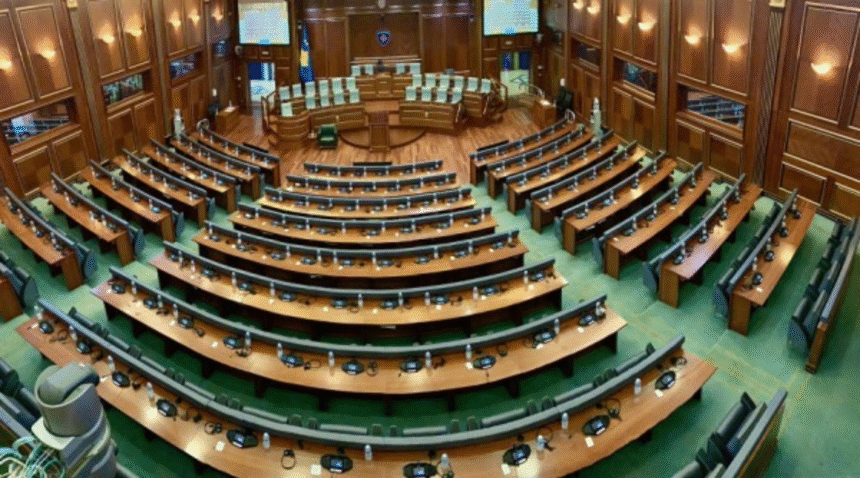The ongoing deadlock in the constitution of the Kosovo Assembly has sparked intense debates over the interpretation of the Constitution and the role of political parties. Despite several rulings issued by the Constitutional Court, their full implementation remains incomplete, raising questions about potential constitutional amendments.
The Court has already issued two rulings regarding the Assembly’s constitution, with a third expected soon. Ambiguities in the process—ranging from secret voting procedures to the selection of minority deputy speakers—have forced political parties to seek clarification from the country’s highest constitutional authority.
One key issue is whether the Assembly can function with one speaker and four deputy speakers, instead of the constitutional requirement of one speaker and five deputies.
Legal experts argue that frequent constitutional amendments are unnecessary. Visar Morina, Professor of Constitutional Law at the University of Prishtina, stated:
“Constitutions are designed to be long-term frameworks. Any ambiguities should be resolved through constitutional interpretation, not constant amendments. Frequent changes would undermine legal certainty and make the Constitution overly flexible, dependent on political dynamics.”
Political analysts echo this view, noting that the current deadlock stems from a lack of political will, rather than constitutional flaws. Avni Arifi, a political expert, added:
“The Constitution cannot replace political parties. If parties deviate from it, even the Constitutional Court cannot enforce compliance.”
The deadlock escalated during the selection of the Serbian deputy speaker. The Serb List, the largest party in the Assembly, proposed a single candidate who failed to secure the required votes in three rounds. Speaker Dimal Basha used a lottery method to select another candidate, deviating from previous practices. None of the nine candidates chosen through the lottery received the 61 votes required.
Political parties remain divided over the need for constitutional amendments. Arbër Rexhaj of Vetëvendosje believes the Constitution already provides clear solutions, while Nait Hasani of the Democratic Party of Kosovo argues that reforms are necessary, particularly regarding the direct election of the president by citizens. Lutfi Haziri of the Democratic League of Kosovo contends that the current deadlock is entirely political, citing a lack of willingness among parties to cooperate.
Experts emphasize that the Constitution should remain adaptable to evolving social and political realities but certain fundamental clauses must remain unchangeable, especially those safeguarding individual rights and freedoms.
The public awaits the Constitutional Court’s decision on the Serbian List’s request, which seeks clarity on the 30-day deadline for Assembly constitution. President Vjosa Osmani initially submitted a related request but later withdrew it, citing national security concerns regarding a reporting judge. Nonetheless, experts maintain that the Court retains the authority to proceed with the case.







